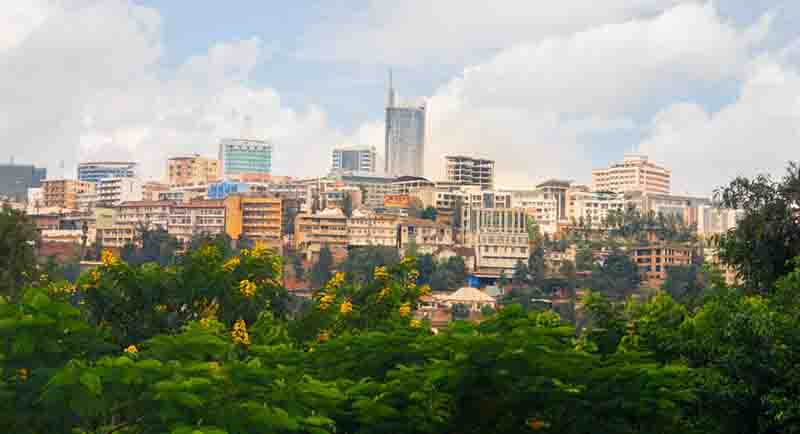Rwanda is seeking to extend it range of partnerships with global financial centres to accelerate its development as an African hub, Rwanda Finance CEO Nick Barigye tells The Africa Report.
Discussions are taking place with potential partners in Europe, the Middle East and North America, Barigye says from Kigali. “The missing link for Africa is financial centres that facilitate the flow of capital,” he says.
Rwanda Finance is a government-owned company set up to encourage investment in the country and region. It promotes the Kigali International Financial Centre (KIFC), set to be officially launched at a meeting of Commonwealth heads of state in Rwanda in June. The company has partnerships with Casablanca Finance City, British development finance institution CDC and France’s BPI.
According to the Global Financial Centres Index published by Z/Yen, Casablanca is currently Africa’s leading financial centre, holding 53rd place globally. Kigali, along with Lagos, is counted as an “associate centre” which does not yet meet all the criteria to be on the full list.
Barigye argues that Rwanda can overcome the constraint of being landlocked to become a regional financial hub: “The African hinterland is the missing area.”
- The continent cannot rely only on financial hubs in places like Casablanca, Johannesburg and Mauritius, he says.
- RwandAir, he notes, is able to provide transit to most African capitals from Kigali.
The continent cannot rely only on financial hubs in places like Casablanca, Johannesburg and Mauritius, he says. RwandAir, he notes, is able to provide transit to most African capitals from Kigali.
The goal of turning Kigali into a regional financial centre fits with the goals of the African Continental Free Trade Area (AfCFTA), Barigye says. Both projects are motivated by a desire to end African dependence on commodity exports, he says. Rwanda’s President Paul Kagame played a key role in building support for the AfCFTA.
Kigali has followed the prescriptions laid down by international organizations with disappointing results. Photo supplied by Rwanda Finance. Rwanda is seeking to extend it range of partnerships with global financial centres to accelerate its development as an African hub, Rwanda Finance CEO Nick Barigye tells The Africa Report.
Obstacles to the success AfCFTA, which came into effect at the start of January, include a “lack of infrastructure, needless red tape, bureaucracy and protectionism,” Barigye says. The fears of some states that free trade will mean a loss of revenue need to be overcome, he adds.
The strength of a large free-trade zone lies in its greater negotiating power, he says. Covid-19 has shown that “it’s much harder if you go it alone. Africa must work as a continent to get the investment it needs.”
Tax incentives
Rwanda Finance’s successes include Westbridge Mortgage, a Canadian bank which has made Kigali its African headquarters, and South African healthcare investment company RH Bophelo, which has listed on Rwanda’s stock exchange. RH Bophelo plans to create a fund to invest in healthcare in Rwanda and the region, Barigye says.
According to Conduits of Capital, a report by FSD Africa on African financial centres and the private-equity industry, the heavy use of offshore structures such as in Mauritius is largely explained by tax considerations. Rwanda’s new investment code, which came into effect in February, includes a range of new tax incentives for foreign investors.
- Investors can get a seven-year tax holiday in manufacturing, tourism, health, exports and energy projects producing at least 25 MW.
- Angel investors putting up to $50,000 in a start-up are exempt from capital gains tax.
- Corporations that establish their headquarters in Rwanda can get corporate income tax rates of 0% depending on their levels of investment and employment.
Bottom Line
Rwanda’s role as an initiator of Africa’s free-trade agreement could give it an advantage in trying to create a regional financial hub.

